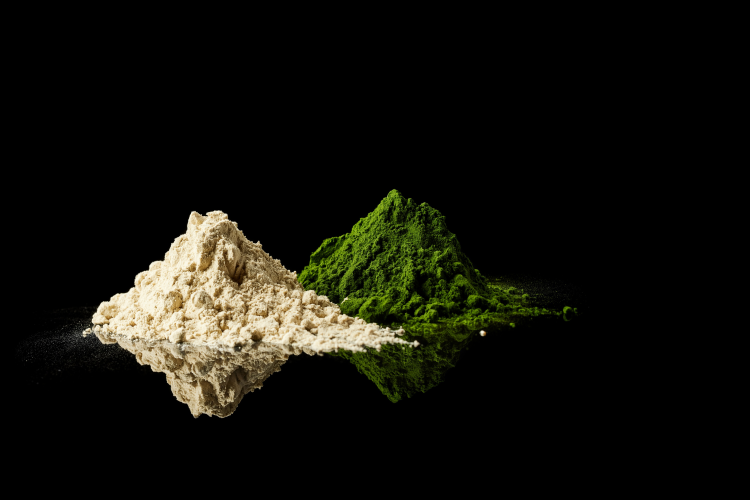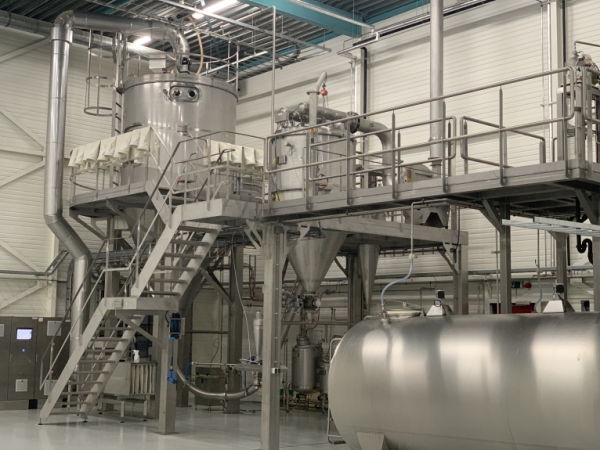Aliga Microalgae purchases new facility to scale chlorella

Danish-based Aliga Microalgae (Aliga) has purchased one of Europe’s largest chlorella algae facilities in Holland. Equipped with modern production units, the plant acquisition signals a move by Aliga to pursue the commercialisation of its chlorella algae products.
Following the purchase on 12th August 2022, the Danish food-tech company seeks to increase its production capacity of chlorella algae products for the food ingredients and dietary supplement markets. Aliga bought the existing microalgae production facility, including its intellectual property and customer stock, from sustainable algae farm company, Duplaco, which defaulted in June 2022, Aliga revealed.
Bringing algae ingredients to market
Aliga specialises in cultivating, producing and commercialising algae ingredients. The food technology startup specifically focuses on developing, producing and commercialising protein-rich and functional chlorella algae ingredients for food and supplement applications.
The company has sought to develop proprietary white chlorella ingredients with improved organoleptic properties. The ingredient is a vegan non-genetically modified organism (GMO) superfood that consists of fermented and dried chlorella algae. It is applicable in a wide variety of formulations, from meat and seafood analogues to savoury, bakery and vegan dairy products.
With the addition of its latest facility, Aliga states it is one of largest producers of chlorella in Europe. Building upon its existing portfolio, the company strives to meet the growing demands for high-quality European-produced chlorella ingredients developed for the rising vegan, plant-based and analogue food markets.
Purchasing the Duplaco facility forms part of Aliga’s scaling strategy. The company hopes to grow its production capacity and secure the supply chain of its proprietary white chlorella ingredient, helping it to become a leading chlorella algae producer for the European dietary supplement markets.
Chlorella commercialisation
“A few things are interlinking at the moment, thus making 2022 the right time to increase our commercial capabilities,” explained David Erlandsson, Co-founder of Aliga. Firstly, the brand’s white chlorella ingredient was introduced to the market in spring 2022.
The launch of Aliga’s white chlorella ingredient onto the market shows “food manufacturers that algae can now be applied in different food formulations which previously wasn’t possible due to algae’s natural high content of chlorophyll and strong flavours”, Erlandsson continued. As a result, this has drawn food manufacturers’ attention to algae as an interesting ingredient.
“There is an incredible boom in developing and producing new plant-based food formulations for a growing number of health and environment-conscious consumers,” said Erlandsson. Therefore, many manufacturers are looking for sustainable and nutritious complements to already established plant-based ingredients such as soy and pea.
Together, Aliga’s production capacity in Denmark, the Netherlands, and through its partner in France, amounts to 400 tonnes of chlorella powder per year. The brand’s production facility in the Netherlands is designed to scale its production by installing more precision fermenters, enabling it to produce up to around 1000 tonnes of chlorella powder per year.
“In the food industry, this amount might not sound a lot, but in the algae world, it will place us as one of the largest producers in Europe,” said Erlandsson. For the brand, it is important to display its production capacity and commit to large volumes of chlorella at a stable quality. “This is particularly important since food manufacturers dislike uncertainties and ‘only’ want to source from suppliers they trust can deliver the amount they need without too long lead times,” added Erlandsson.
Popularity, acceptance and applications
Chlorella has existed for around two billion years and is described as the origin of plants on earth. Yet, its strong chlorophyll content has prevented it from becoming a core food ingredient. Thus, many algae farmers have not approached the food segment with their products, Erlandsson shared.
With the increased interest and subsequent demand for plant-based food, manufacturers and consumers are seeking “new” protein-rich sources that can be used and consumed sustainably.
“By improving chlorella’s organoleptic properties, the acceptance for using it in food has increased dramatically since its nutritional composition can now be utilised without having an adverse effect on taste and flavour,” said Erlandsson.
Aliga states its ingredient is currently in a wide variety of analogue food formulations such as plant-based meat, seafood, fish, and different types of cheese. The company is now also seeing demand from bakery and savoury manufacturers who want to enrich their formulations with white chlorella due to its proteins, vitamins, minerals, and fibre content.
“All these factors combined are the basis for the implementation of our strategic commercial plans to become the largest European-based chlorella producer supplier,” Erlandsson added.
Leveraging the opportunity for chlorella
Chlorella has previously had its stronghold in dietary supplement applications. However, with the recent introduction of different chlorella ingredients with a more neutral flavour and colours and less algae taste, the interest from the food ingredient industry is growing.
“We believe chlorella algae will become one of the main crops in the plant-based segment within the next ten years,” said Erlandsson. The expectation is based on the notion that the algae component chlorella is one of the most nutritious crops that can be cultivated. Also, it is classified as a “whole food”, not as a concentrate or isolate like current pea and soy products are, Erlandsson added.
In addition, manufacturers can cultivate large volumes of the ingredient using precision fermentation technology. “With increasing demand, more funds will be invested in the production and its supply chain, which inherently will bring down the production costs and result in lower price levels,” Erlandsson continued. Precision fermentation also makes the cultivation highly sustainable as the product can be undertaken on most industrial plots. As a result, the ingredient’s cultivation does not compete for arable land with other food sources such as wheat, corn and peas.
Commercial production and scalability hurdles
Scaling production can always be challenging as building a new facility can take a long time and be more expensive than budgeted. By acquiring the Dutch production facility, Aliga had access to a production facility that was already up and running and had room to expand its production capacity by installing more fermenters quickly.
Aliga recognises that an important challenge affecting the whole industry is rising energy costs, which “we, of course, are working with to optimise our production”, noted Erlandsson.












